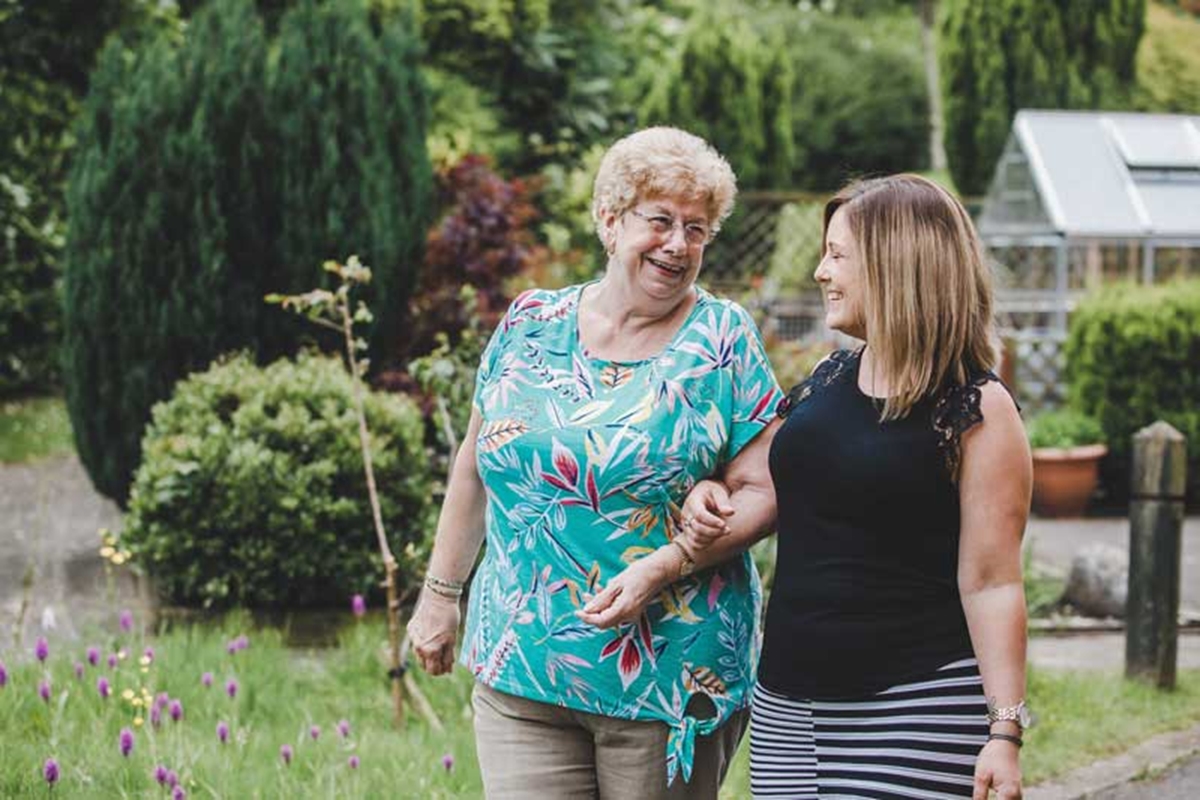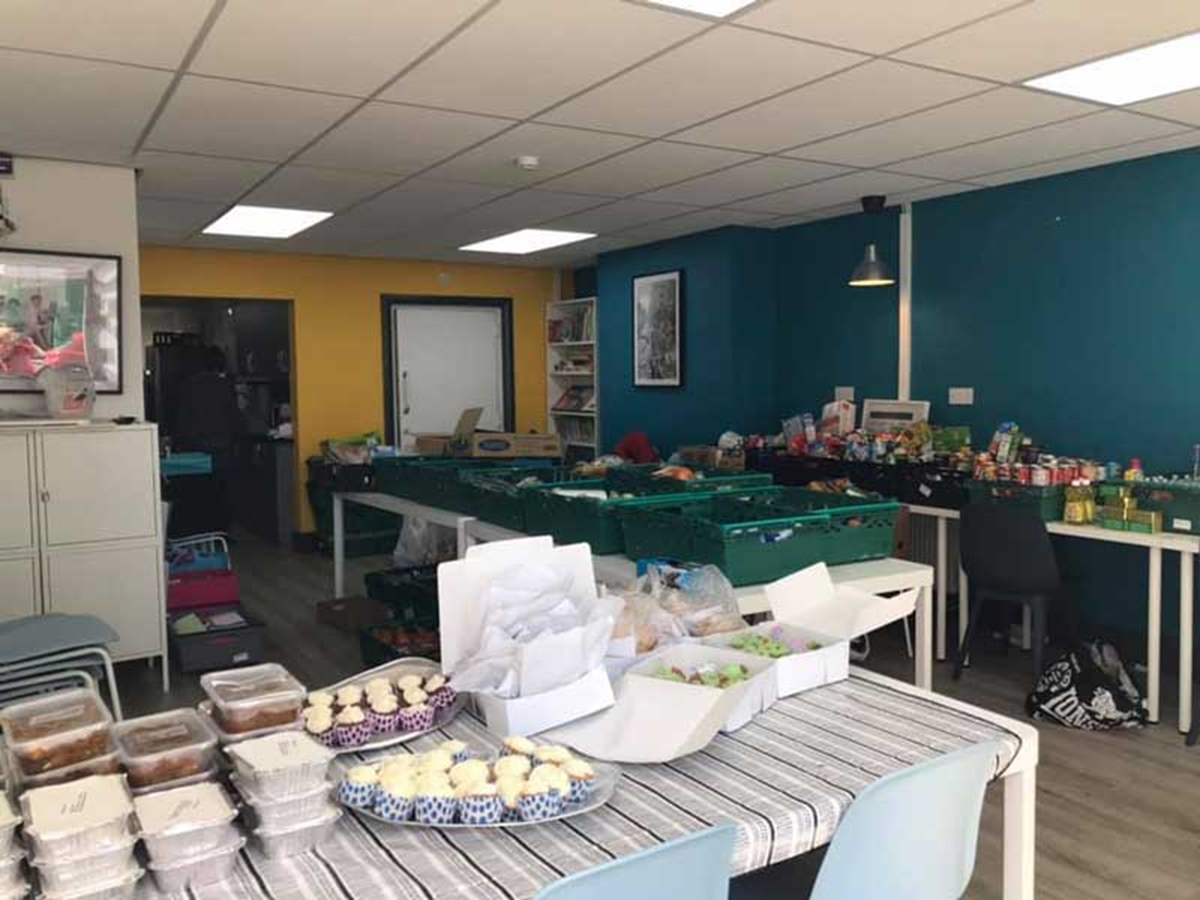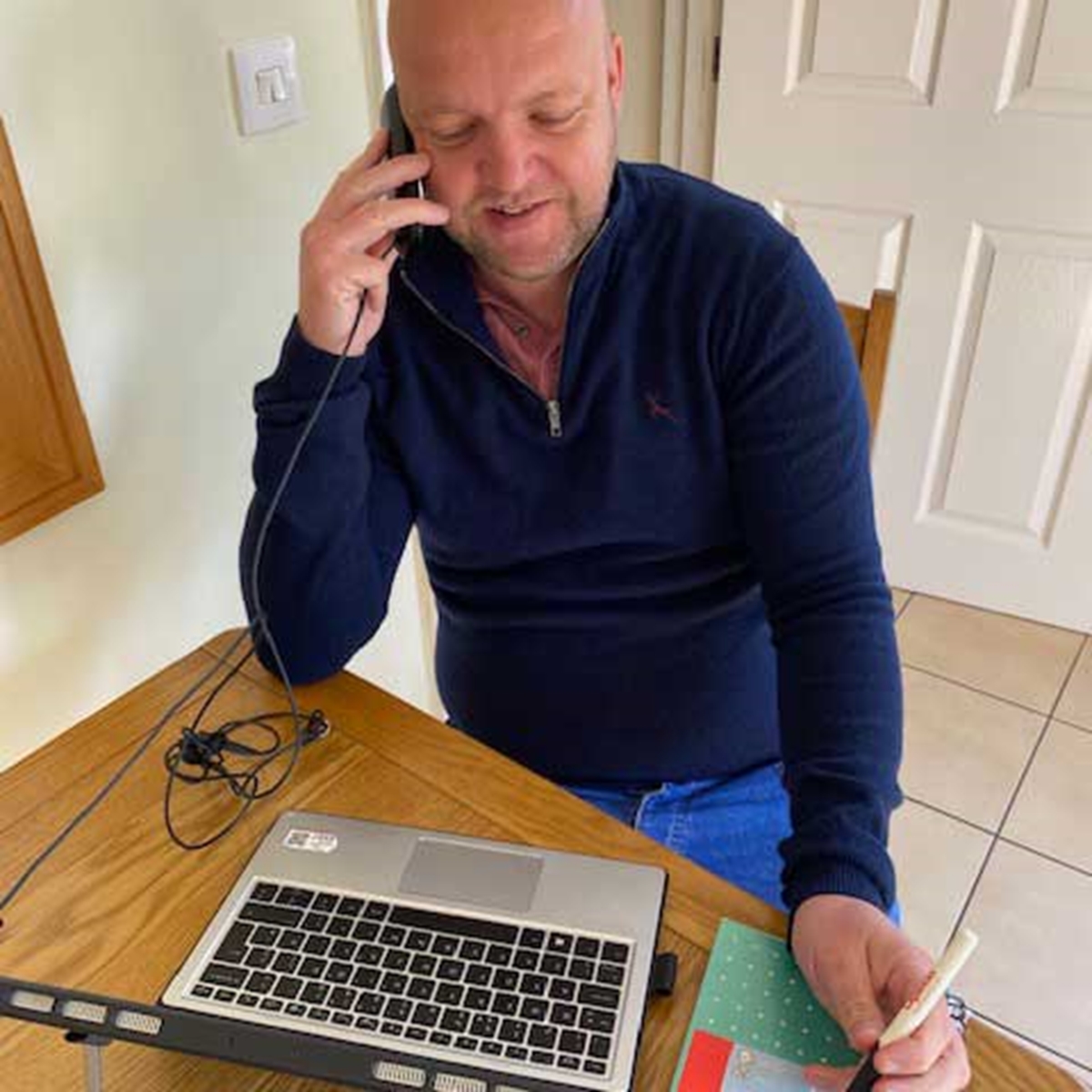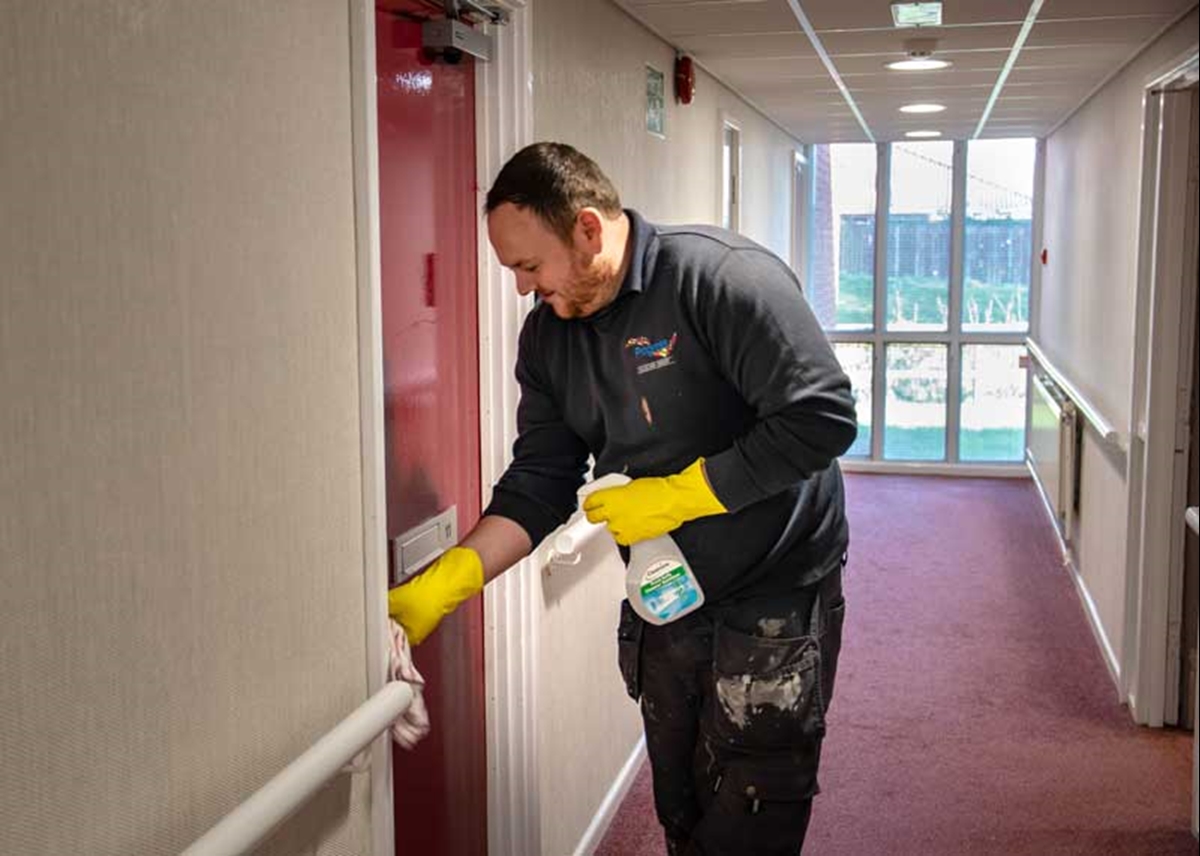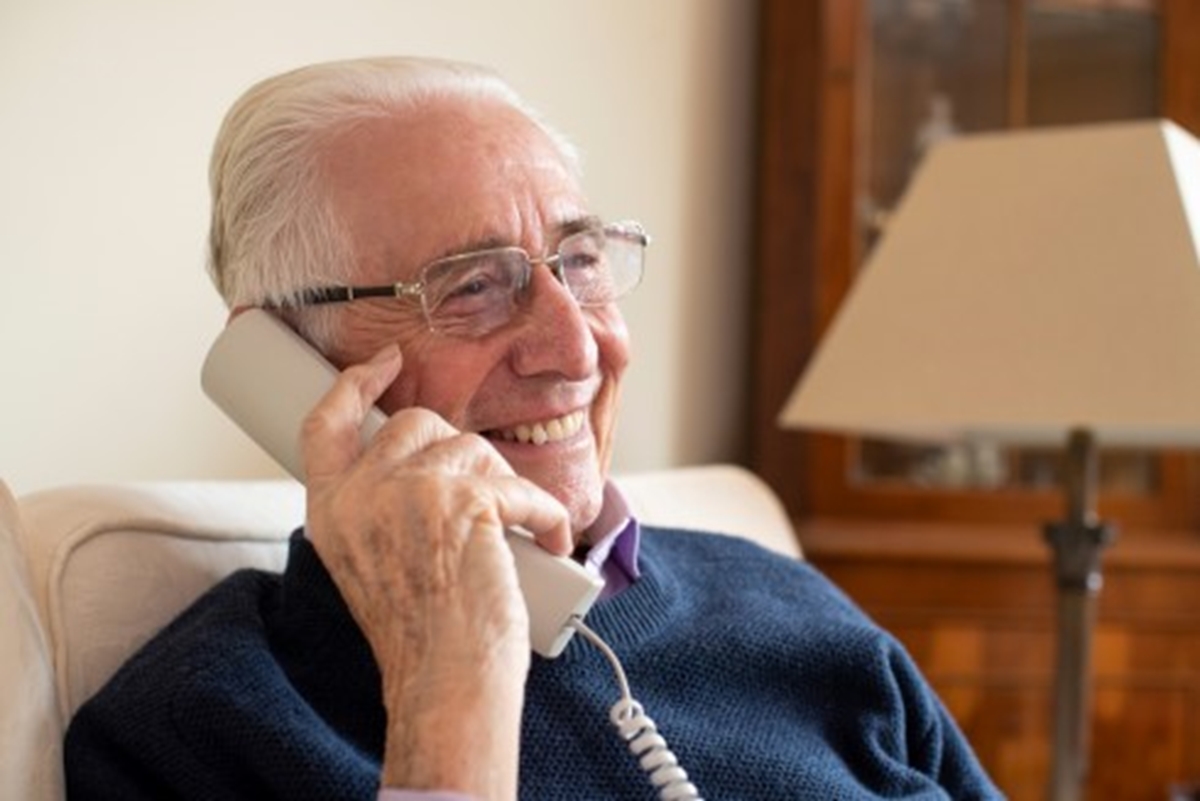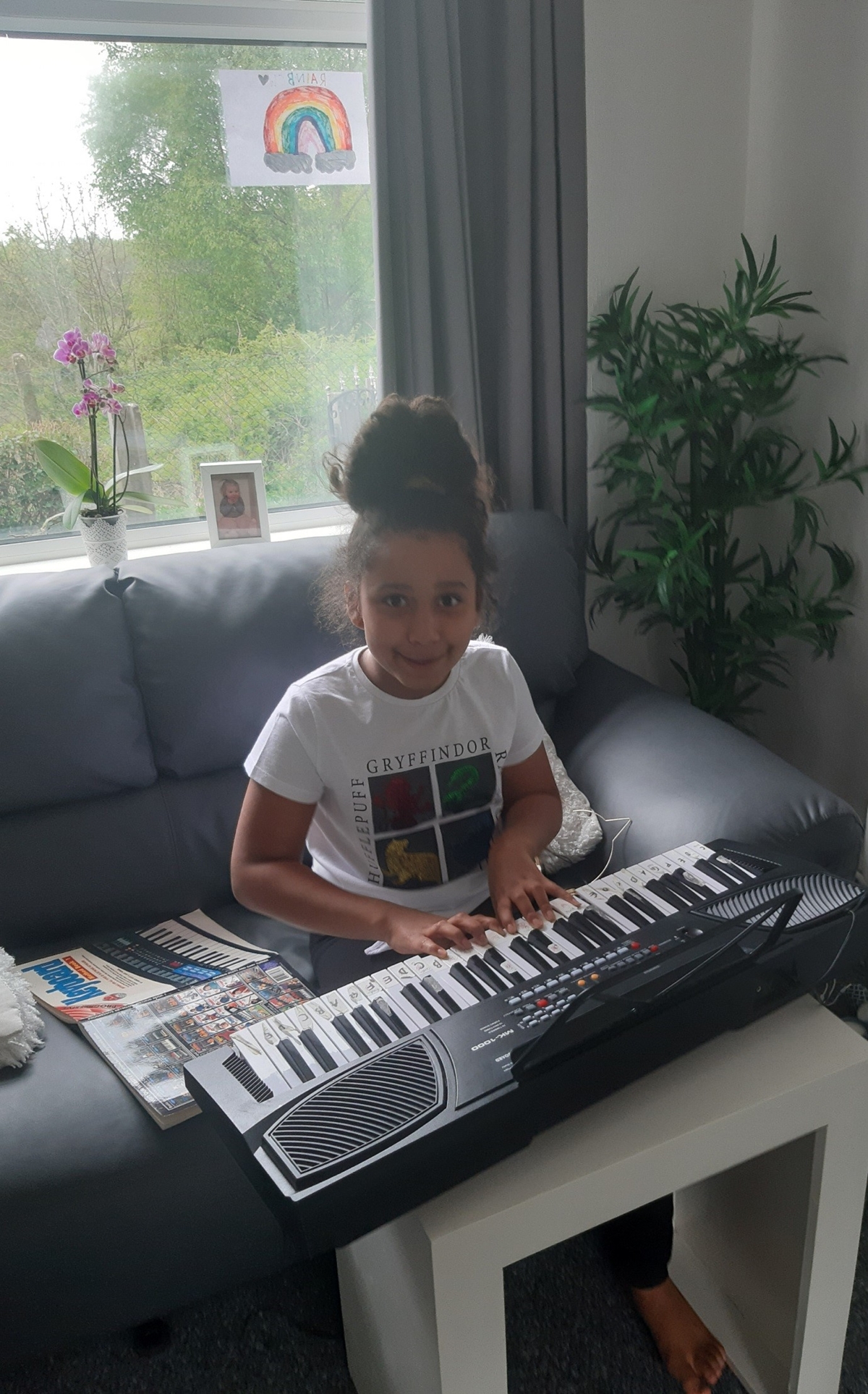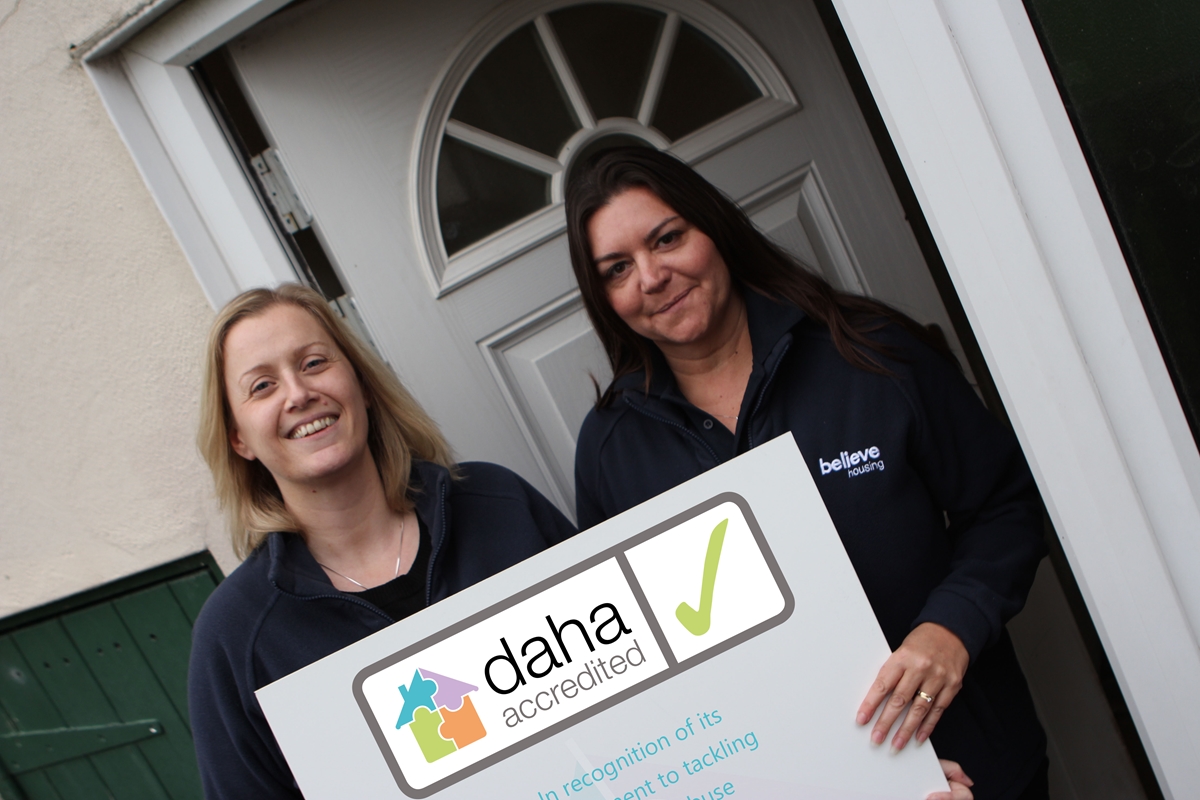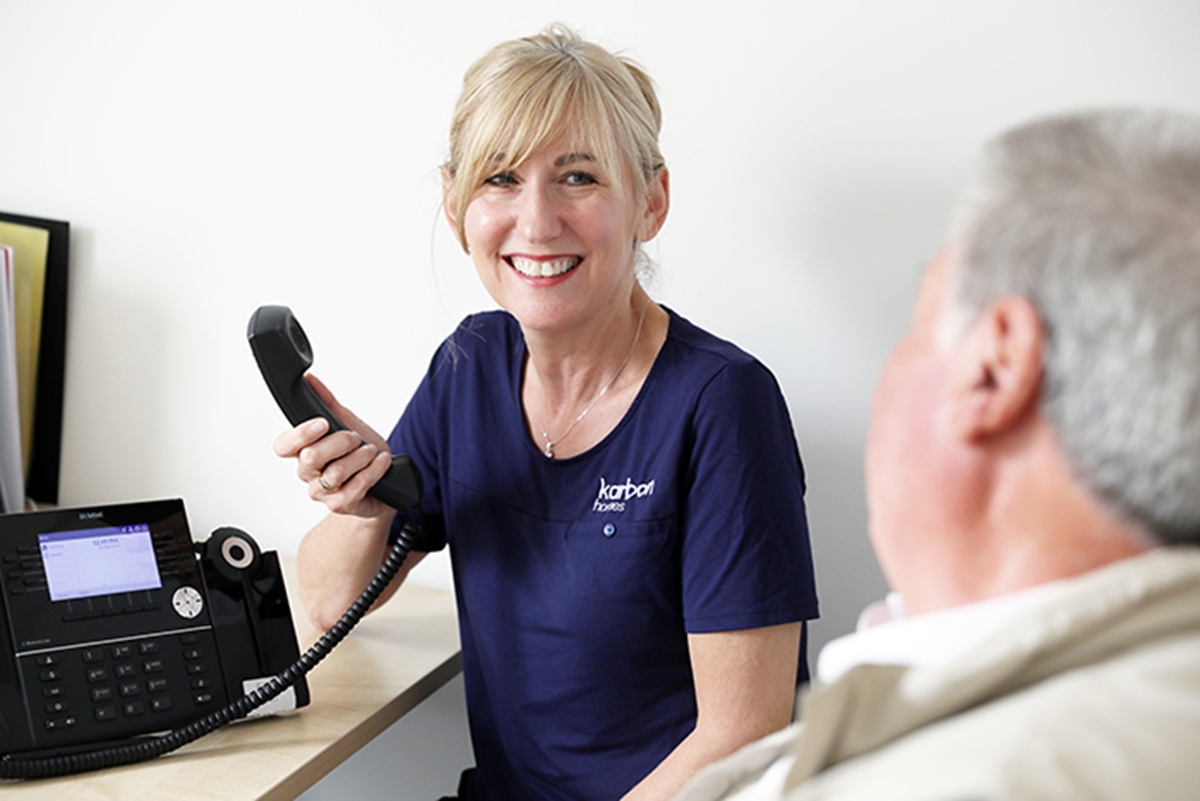Across the country, housing associations are working hard to ensure that their most vulnerable and isolated residents feel reassured, safe and well looked after during the coronavirus crisis.
How housing associations are supporting older and vulnerable residents
The Staffs Housing gardening team have been safely working throughout lockdown and visiting over 90 sites every 15 days. To older and isolated residents unable to exercise outside, being able to access a communal garden is priceless.
Mary, a resident, told the team that over 30 years ago she and her husband were looking for a new home and were drawn to the scheme due to the garden. Mary says she is “so happy to have the garden at such a difficult time” and loves the scheme just as much as she did all that time ago.
North Star’s community space, The Hub, has been transformed into a distribution site for partners to prepare food parcels and nutritious meals, and is helping to support Stockton Council to distribute free school meals. North Star has also provided extra funding for additional care packages and ‘boredom buster’ craft activities to be given out to local residents.
A team of organisations and volunteers have worked together to collect generous donations from local businesses, cook meals, pack food parcels and deliver them to families in need.
Selwood Housing has introduced a new service to make welfare calls to residents who may be at risk. They have phoned 2,000 vulnerable or isolated residents to they are safe and have a point of contact should they need help.
As a local housing association, we feel part of the local community and we want to ensure that our customers are safe. For some customers, hearing another’s voice makes a big difference – one of our callers spoke to a customer who lives alone and would normally rely on voluntary work for social interaction.
We’re working closely with Wiltshire Council to support their coronavirus activities, including emergency lettings to support people that may otherwise become homeless.
Nick White is one of the welfare callers on the team:
“In my normal day job, I’m a property surveyor and would be out visiting customers, planning for upcoming repairs or works within our communities, but that’s just not possible right now. Supporting the welfare calls means that I can still contribute at this challenging time for our residents."
Community Gateway Association teamed up with a local social enterprise to deliver food to our most vulnerable residents
The Larder promotes healthy, nutritious food that is local, seasonal and waste-free, with all its profits going to communities in need.
Blog by Sian Coulton, Community Engagement Manager at Community Gateway Association
Read Sian's blog
How we are supporting our most vulnerable residents during coronavirus lockdown
Our residents are always the top priority for everyone at Sovereign. Keeping them safe during the coronavirus outbreak, while continuing to deliver much needed services, has been our main aim since the beginning of this crisis.
Blog by Lorraine Adams, Head of Tenancy Management at Sovereign.
Read Lorraine's blog
Progress Housing Group has taken a collaborative approach to support its residents, working closely with local partners, and bringing internal teams together to make a positive difference in our local communities.
A new service, ‘Here to Help’ was set up to provide support through welfare calls to Progress’s most vulnerable and older residents, including those who may be digitally excluded. This has helped residents easily access guidance, signposting to local services and urgent referrals where needed.
Progress’s trade operatives, who normally work as joiners, roofers and labourers, have carried out essential cleaning work after the Group’s regular contractor was unable to provide this service due to coronavirus. And Steve, a plumber, has been phoning ahead to residents on his way to provide emergency repairs to check if they needed any shopping collecting on the way.
Octavia has set up a telephone befriending service for older people, training and supporting hundreds of volunteers remotely. Switching more than 100 volunteers from their face-to-face befriending programme has meant that those who rely on this service are able to keep in contact with their befriender, and build a friendship bond.
Reena Mukherji, Director of Octavia Foundation, says: "By adapting our services, we are able to help those feeling the social impacts of isolation feel a little more connected during a challenging point in their lives.”
Brenda, a befriending service user, says: "I talk to my befriender for an hour every week about all sorts of things. Even after such a short space of time, I have found myself confiding in her because we have built a level of trust.”
Octavia has also launched a virtual youth club and free online activity programme to keep youngsters engaged and connected during lockdown, replacing their face-to-face Base@theReed club. Led by Octavia’s qualified youth workers, Base@Home offers young people a mixture of music production, photography, filmmaking, art and design to keep them occupied and entertained.
More than 40 young people have taken part in the activities since launching in March. The club is open to all skill levels, with tutorial videos available to help beginners get started.
At Vale of Aylesbury, more than twenty staff members volunteered to call over 2,400 residents aged 70+ living in an independent living home, or with a disability or vulnerability, to provide reassurance and understand what their needs were. They have been able to alleviate residents’ fears about paying rent, as well as put them in touch with local volunteers to get food, supplies and conversation.
Hundred Houses Society have been making wellbeing calls, phoning round nearly 300 residents who are 70 years old or over, or who live in the Housing for Older People schemes that they manage.
By listening carefully to residents’ concerns and working together with other agencies, they have been able to help in many ways including:
- Finding volunteers from Care Network Cambridge to support residents with shopping, telephone chats and wellbeing support.
- Contacting East Chesterton Mutual Aid whose volunteers are assisting residents with shopping and medication delivery as well as providing support calls to those who are very isolated.
- Arranging support and weekly telephone counselling sessions from Cruse Bereavement.
- Looking for help with gardening services.
- Identifying a specialist worker at the Red House Surgery in Chesterton for vulnerable patients.
First Choice Homes Oldham’s Employment Service Advisor Becky and 94-year-old resident Jack have become friends during the coronavirus outbreak.
Becky volunteered to become a ‘befriender’ in the Oldham area after Age UK set up a scheme to help combat loneliness and stop local people feeling isolated. Becky and Jack struck up a friendship and now speak every day.
Becky said: “Chatting with Jack is like soup for the soul – I don’t know who’s helping who. My daughter Caitlin and I get as much out of it as he does.” For Jack, these chats ease his loneliness now he can’t go out for daily trip to his local shops and weekly visits to Oldham market.
Jack said: “I really enjoy our calls. I am so grateful every time Becky phones me and it feels like I’ve known her for years.
Sanctuary Supported Living, part of Sanctuary Group, manages Plymouth Domestic Abuse Services (PDAS), and Torbay Domestic Abuse Service (TDAS), both of which are on the frontline supporting people who may be at increased risk.
PDAS extended its service to be open 24 hours a day, seven days a week, giving people who are suffering from domestic abuse access to valuable support. Sanctuary has been able to provide temporary accommodation for people at risk, and is supporting around 300 people in total.
Sanctuary has run a social media campaign, Fleeing Domestic Abuse is Essential Travel, with the local authority, and they have worked together to identify other suitable housing options. They also provide additional support to people with finances, building confidence and self-esteem, as well as signposting to local agencies, such as drug and alcohol services, so people who have been affected can build their future and move on with their lives.
Believe Housing has made more than 10,000 calls to residents to check if they need any advice or assistance during lockdown. Believe is a member of the Domestic Abuse Housing Alliance, and has provided re-housing support to residents faced with emergency and often dangerous housing situations due to homelessness or domestic abuse.
The organisation prepared properties for these situations prior to lockdown, and in some cases ‘target hardening’ measures have ben installed including window films, lockable letter boxes and alarms to reduce the potential for incidents.
Believe also allocated an initial £10,000 to a new Coronavirus Crisis Fund for community projects that are keeping vulnerable people connected, and to provide help with food at a time when many people are seeing new financial difficulties.
In the first month of the new programme, 18 community groups had been awarded funding, including:
- The Angel Trust who produce and distribute food packages to local people most in need.
- Seaham Youth and Community Centre where volunteers have created and distributed activity packs for families and older people.
- Finchale Group who provide phone and online services for anyone struggling with their emotional and mental health during the crisis.
In the first four weeks, 700 food packs and 350 activity packs were sent out, and online support and activities have been provided for more than 700 people.
emh group has teamed up with Erewash Borough Council to get empty homes turned around and into immediate use by people suffering from domestic violence, rough sleepers and other vulnerable residents. This has enabled 16 people who were without a home or living in unsuitable or difficult circumstances to access safe, affordable accommodation during the coronavirus crisis.
One resident had been waiting for a property for her and her two children, having escaped an abusive relationship. She said: “emh has really have changed our lives and has given me the opportunity to live again.
Karbon has supported 97 different community projects with almost £120,000 of funding since the start of the coronavirus outbreak. The fund has supported a range of projects that deliver food parcels, medicines, hygiene products, health and wellbeing, digital and virtual services, and financial support to vulnerabl people in the North East.
Karbon has also tripled the size of its befriending service, Silver Talk, offering support to almost 10,000 older and isolated residents. The service, which provides a 30-minute social telephone chat each week to people aged 55 and over, took on a further 45 volunteers and is now providing support to over 300 residents.





